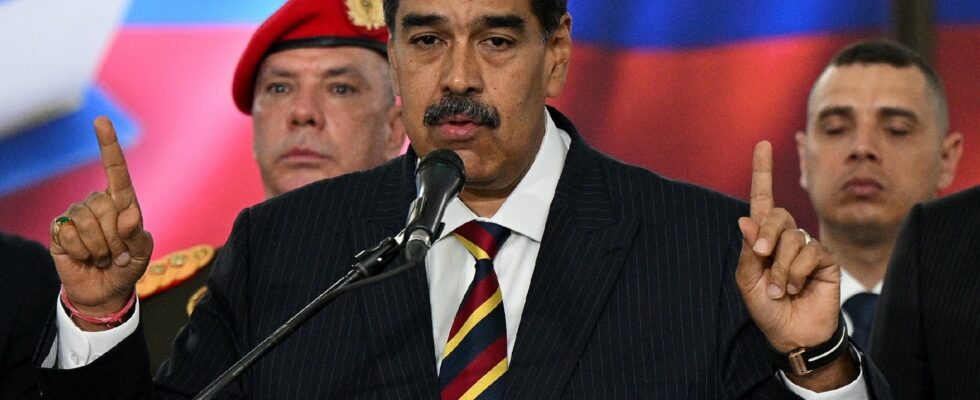International pressure is increasing on Venezuela. While Nicolas Maduro’s re-election to a third term is strongly contested within the country and internationally, the United States is maneuvering behind the scenes to push the dictator to give up power, according to an article in Wall Street Journalpublished Sunday, August 11. On Thursday evening, the head of American diplomacy, Antony Blinken, had already publicly positioned himself on the results of this controversial election: “Given the incontrovertible evidence, it is clear to the United States and, above all, to the Venezuelan people, that Edmundo Gonzalez Urrutia won the most votes in the presidential election of July 28.” According to the newspaper, the Americans then offered Maduro a pardon in exchange for his departure by January.
Since 2020, Maduro and several of his close associates have been indicted for “narco-terrorism.” US Attorney General William Barr has formally accused him and his close associates of colluding with a Colombian far-left armed group to “flood the American market with cocaine.” So much so that Washington is offering a reward of up to $15 million for anyone who helps arrest and convict him. Last year, the United States had already offered Maduro amnesty during secret talks in Doha, Qatar, but he refused to discuss the terms of his departure. A person close to the regime told Wall Street Journal that Maduro’s position had not changed so far.
Getting out of the impasse
International action may be the only way to force Maduro from power, after 11 years of authoritarian rule have caused an economic implosion, diplomatic isolation and the exodus of nearly eight million Venezuelans, more than war-torn Syria and Ukraine. Latin America’s three most populous countries – Brazil, Mexico and Colombia – are also involved in the effort to break the deadlock. U.S. officials want them – led by left-wing politicians who support Maduro – to take a tougher stance than their current stance of pressuring him to produce evidence of victory.
It must be said that time is running out: Democrats fear a Donald Trump victory next November, which could stifle negotiations if the former president returns to his previous aggressive policies towards Maduro, when his administration imposed oil sanctions and supported a Venezuelan shadow government to overthrow the regime. For his part, Nicolas Maduro remains wary of Washington. “The United States considers itself the electoral authority in Venezuela and in the rest of the world,” he lashed out at a press conference on August 2, repeatedly attacking the head of American diplomacy, Antony Blinken.
